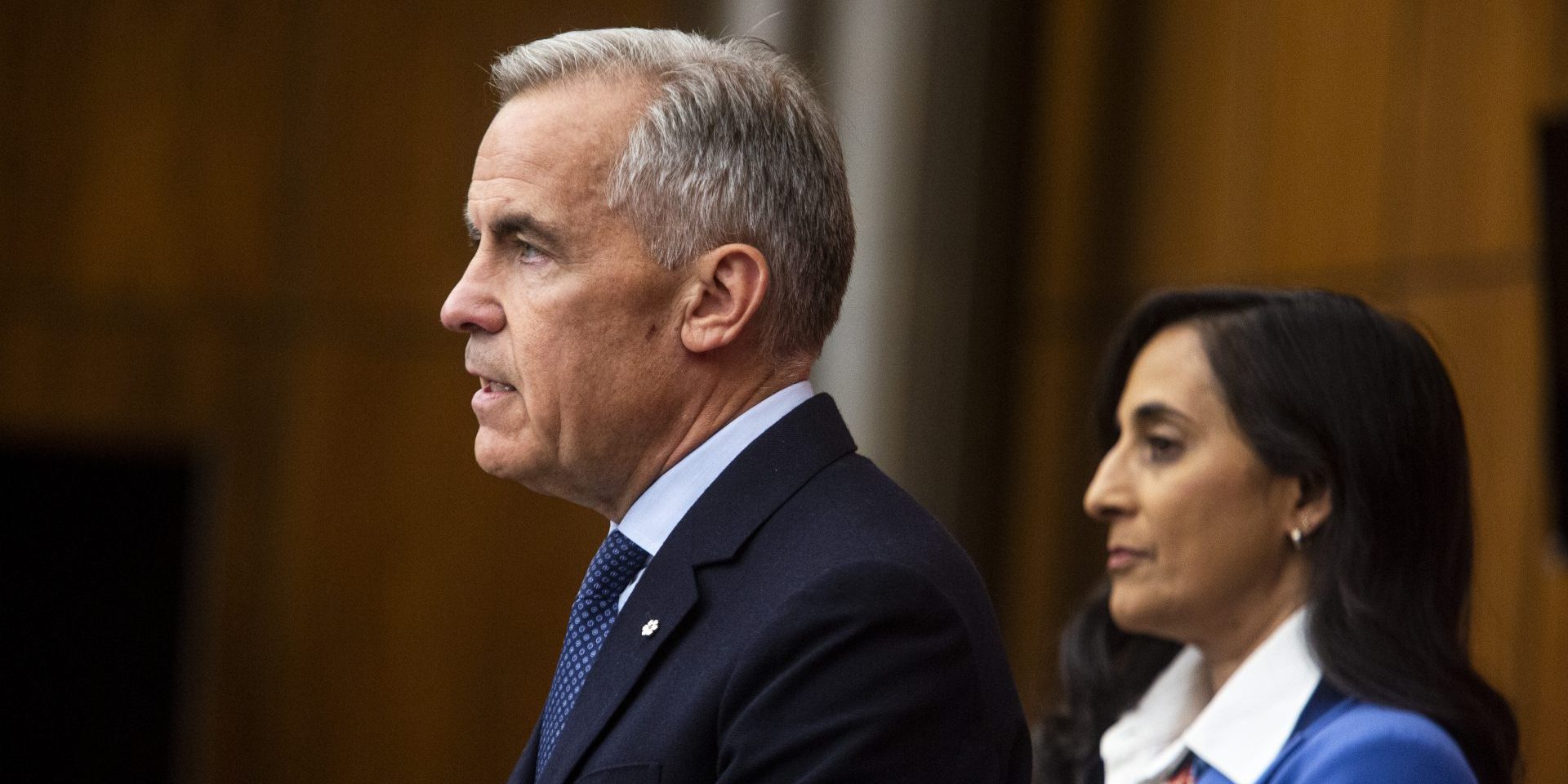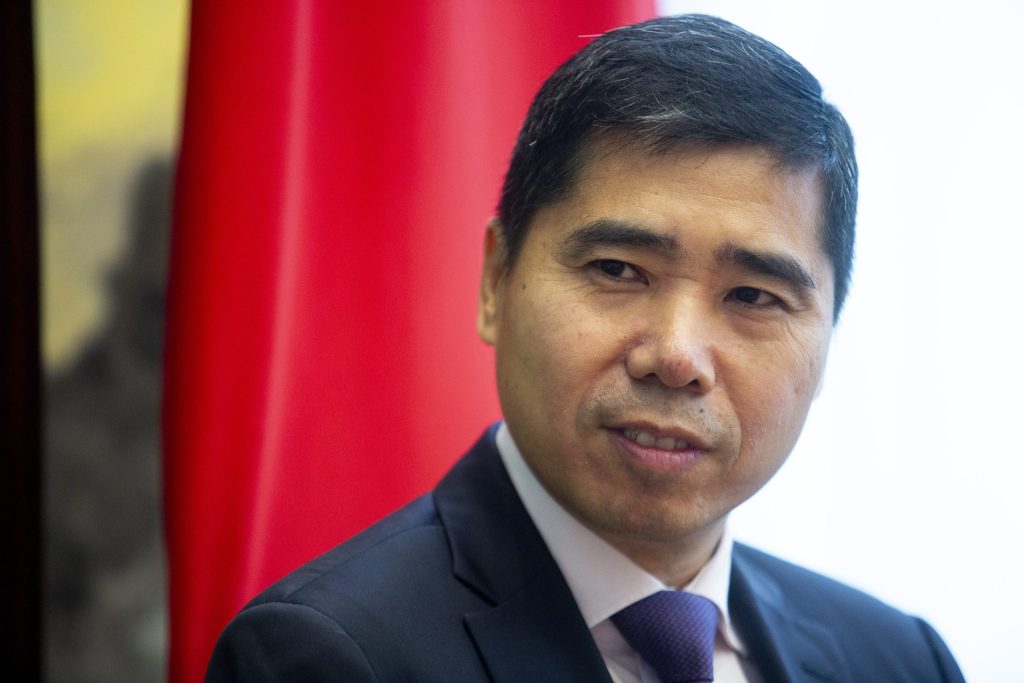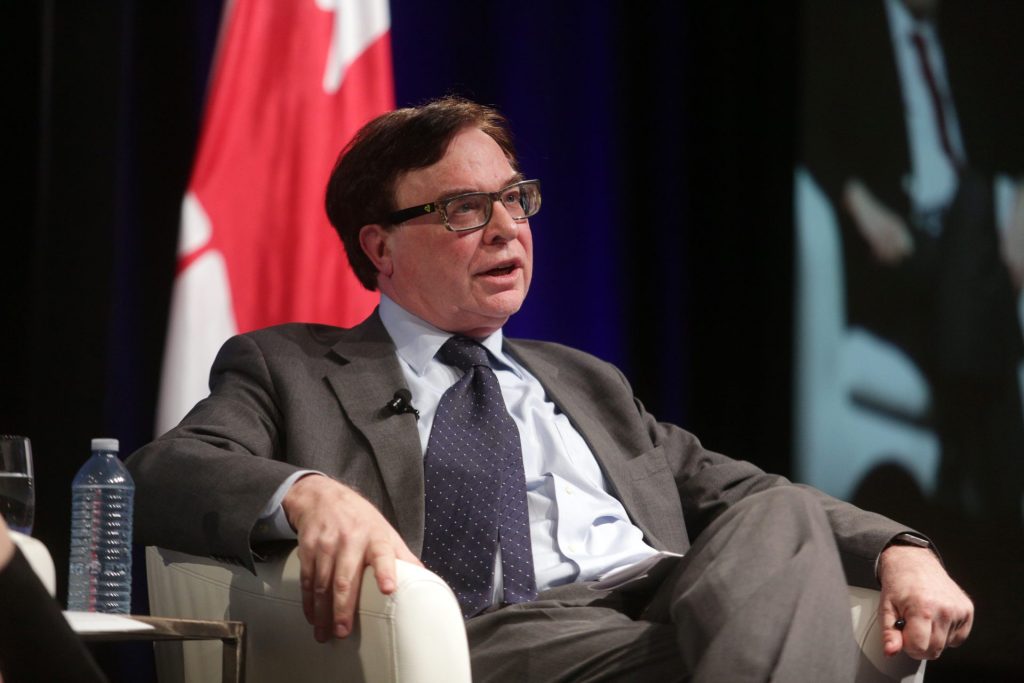Canada needs ‘eyes wide open’ approach to China amid diversification efforts, say observers

With Canadian canola under threat of Chinese sanction, observers of the bilateral relationship say that Ottawa needs to have its “eyes wide open” to how Beijing approaches the world.
Relations between Canada and China have soured since the Two Michaels affair beginning in 2018. Since then, there have been modest attempts to recommence high-level dialogue. Prime Minister Mark Carney (Nepean, Ont.) had his first call with Chinese Premier Li Qiang in June. In July, Foreign Affairs Minister Anita Anand (Oakville East, Ont.) met with her Beijing counterpart, Wang Yi.
“My impression is that [Carney] wants to improve the relationship,” said Guy Saint-Jacques, who served as Canada’s ambassador in China from 2012 to 2016. “I think he has come to the conclusion that, the way that our relationship is going on with the U.S., that we have to be serious when we talk about diversifying our markets.”
At the same time, billions of dollars of canola seed exports are under threat after China put in place a tariff on exports on the key Western Canadian crop starting Aug. 14. Saskatchewan Premier Scott Moe has urged Carney to meet with Chinese President Xi Jinping on the issue, as The Canadian Press reported earlier this month.
Saint-Jacques said Beijing’s move fits with China’s typical pattern of punishing a country through trade action on products it can get elsewhere.
The tariffs were applied in apparent retaliation against Canada’s 100-per-cent levy on Chinese electric vehicles that were put in place last year.
Saint-Jacques said Canada has to be aware of the way in which China operates—including with respect to foreign interference—but he noted there are still commercial opportunities that should be pursued with China.

“We have products that the Chinese need,” he said. “Of course, it remains a difficult market. But I think if we are serious about diversifying, we cannot neglect China.”
Last March, Carney suggested there were areas for diversification in Asia, but remarked that “partners in Asia that share our values don’t include China.”
Saint-Jacques said building commercial links with China doesn’t mean that Canada won’t raise its concerns with Beijing when needed, including working with allies to call out any Chinese bad actions.
“With difficult issues where Canada has little influence on China, we have to co-ordinate our messages with allied countries,” he said, remarking that would include Europe, Australia, and New Zealand.
He said Canada needs to join in démarches that impress on Beijing that we expect it to follow international rules.
“We also have to be able to tell the Chinese that we won’t tolerate any interference, that we won’t tolerate any spying, and if we catch people engaging in such activity, there will be consequences, including expelling diplomats,” he said.
Canada and China have struck recent agreements, including in restarting the Joint Economic and Trade Commission, which seeks to address trade irritants, as well as the two foreign ministries renewing the Canada-China Scholars’ Exchange Program—something Saint-Jacques called a “good sign,” remarking that there is a need for people-to-people contact.
Need for a made-in-Canada approach to China
The Asia Pacific Foundation of Canada’s Vina Nadjibulla, vice-president of research and strategy, said that when Carney came into office, he did so with a recognition that Canada needs to recalibrate its approach with China.
“The world has changed. The U.S. leadership of the Western collective response to China’s threat is no longer reliable,” she said, remarking that Ottawa needed a made-in-Canada policy of “strategic and selective engagement” that balances national security concerns with the need for market access and continued trade in agriculture and energy.
She said that led to a restart in high-level dialogue, which led to the call between Carney and Li, and likely an attempt for an in-person meeting on the margins of the upcoming Asia-Pacific Economic Cooperation summit this fall.
Nadjibulla said that doesn’t mean a normalizing of relations with China.
“We have to be really clear about our expectations. This is not a return to some kind of re-engagement pre-2018. This is not an invitation to deepen trade relations with China,” she said. “There has to be recognition that over-reliance on either China or the U.S. presents risks.”
She said that no matter what happens in the canola dispute, Canada needs to diversify markets to blunt its overreliance on China—and the United States.
“This doesn’t mean we won’t trade for China,” she said. “But whenever we find ourselves in a situation where 60-plus per cent goes either to China or the U.S., we have to be clear eyed that that opens us up to coercion.”
“Trade is important. Commercial relations with China are important. But de-risking has to continue,” she said, remarking that deeper integration with China comes with “huge risks.”
“The bigger picture is still unchanged. China will use coercion and there will be moments—because of our relationship with the U.S., and because of our values and interests—where we disagree with China. And when China disagrees, it applies this kind of leverage,” she said.
The path to re-engagement
Former Canadian diplomat Henri-Paul Normandin, who was posted to China during his foreign service career, said that both Canada and China have been making overtures that they want to re-engage with each other.
He said that is particularly the case on economic issues.
“China is trying to present itself as a reliable and responsible partner by contrast to the United States—they think,” he said. “It’s a good thing that they try that. However, the proof will be in the pudding.”
He said over the last few years, China has demonstrated that it is not a reliable partner, adding that it will be up to Beijing to prove that it has changed its ways.
“It will take some time,” Normandin said.
He said Canada’s current rocky relationship with the U.S. ensures that Canada will have to look at other markets.
“Obviously, China has to be one of them,” he said. “It is time for Canada and China to try to reconnect—economically, in particular.”
“This has to be done [with] eyes wide open,” he said. “We have to try to avoid dependency on the Chinese market, but [that is] easier said than done.”

He said that the Canada-China relationship won’t return to the operating conditions as they were prior to the Two Michaels affair.
Normandin echoed Saint-Jacques, remarking that Canada needs to continue raising concerns with China when they are present. He said that specifically is the case with foreign interference.
“We cannot let China off the hook on this one,” he said. “We have to remind them on every occasion that we have concerns on that. And we have to pressure them to try to reduce or stop this—we cannot give up on that.”
Chinese Ambassador to Canada Wang Di told The Hill Times in July 2024 that his country didn’t need to change its approach to Canadian elections, asserting that it had not interfered.
Past Canadian diplomat Charles Burton, who was twice posted to China, said that it is clear that Canada has adopted an approach to Beijing that shies away from comments on human rights.
He noted, for example, that there was no Canadian statement on the trial of Hong Kong politician and businessman Jimmy Lai.
“There seems to be a conscious decision within the PMO to not [have Carney] identify with anything that the Chinese government would not be happy about,” he said.
Burton said that has resulted in Carney not discussing China’s human rights record, and has contributed to the delay in implementing a foreign agent registry.
“A lot of these things that we have thought would have been enacted by the government, Mr. Carney seems to be putting on the back burner in favour of a promise of expanding trade,” Burton said.
nmoss@hilltimes.com
The Hill Times






 LICENSING
LICENSING PODCAST
PODCAST ALERTS
ALERTS













